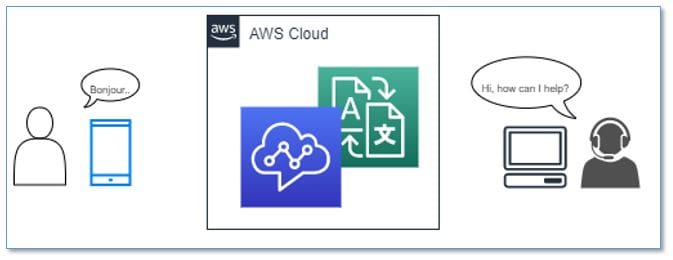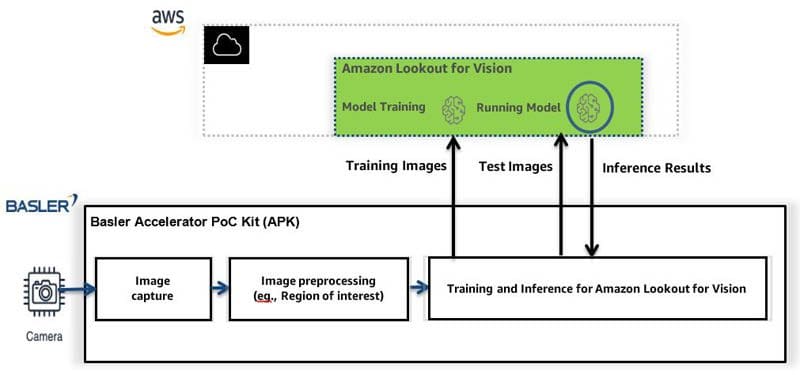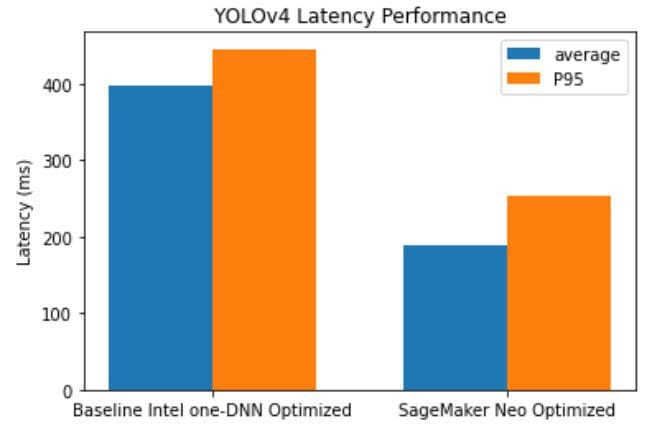Favorite Amazon SageMaker is a fully-managed service that enables data scientists and developers to build, train, and deploy machine learning (ML) models at 50% lower TCO than self-managed deployments on Elastic Compute Cloud (Amazon EC2). Elastic Inference is a capability of SageMaker that delivers 20% better performance for model inference
Read More
 Shared by AWS Machine Learning May 21, 2021
Shared by AWS Machine Learning May 21, 2021
Favorite Many businesses support customers across multiple countries and ethnic communities, and therefore need to provide customer service in a wide variety of local languages. It’s hard to consistently staff contact centers with agents with different language proficiencies. During periods of high call volumes, callers often must wait on hold
Read More
 Shared by AWS Machine Learning May 21, 2021
Shared by AWS Machine Learning May 21, 2021
Favorite Cartier is legendary in the world of luxury — a name that is synonymous with iconic jewelry and watches, timeless design, savoir-faire and exceptional customer service. Maison Cartier’s collection dates back to the opening of Louis-François Cartier’s very first Paris workshop in 1847. And with over 174 years of
Read More
 Shared by Google AI Technology May 21, 2021
Shared by Google AI Technology May 21, 2021
Favorite AI is integral to so much of the work we do at Google. Fundamental advances in computing are helping us confront some of the greatest challenges of this century, like climate change. Meanwhile, AI is also powering updates across our products, including Search, Maps and Photos — demonstrating how machine
Read More
 Shared by Google AI Technology May 20, 2021
Shared by Google AI Technology May 20, 2021
Favorite Amazon Lookout for Vision is a machine learning service that spots defects and anomalies in visual representations using computer vision. With Amazon Lookout for Vision, manufacturing companies can increase quality and reduce operational costs by quickly identifying differences in images of objects at scale. Basler and Amazon Lookout for Vision
Read More
 Shared by AWS Machine Learning May 19, 2021
Shared by AWS Machine Learning May 19, 2021
Favorite Machine learning (ML) models have been deployed successfully across a variety of use cases and industries, but due to the high computational complexity of recent ML models such as deep neural networks, inference deployments have been limited by performance and cost constraints. To add to the challenge, preparing a
Read More
 Shared by AWS Machine Learning May 19, 2021
Shared by AWS Machine Learning May 19, 2021
Favorite Originally, Maysam Moussalem dreamed of being an architect. “When I was 10, I looked up to see the Art Nouveau dome over the Galeries Lafayette in Paris, and I knew I wanted to make things like that,” she says. “Growing up between Austin, Paris, Beirut and Istanbul just fed
Read More
 Shared by Google AI Technology May 19, 2021
Shared by Google AI Technology May 19, 2021
Favorite It’s great to be back hosting our I/O Developers Conference this year. Pulling up to our Mountain View campus this morning, I felt a sense of normalcy for the first time in a long while. Of course, it’s not the same without our developer community here in person. COVID-19
Read More
 Shared by Google AI Technology May 18, 2021
Shared by Google AI Technology May 18, 2021
Favorite Artificial intelligence (AI) has the potential to help clinicians care for patients and treat disease — from improving the screening process for breast cancer to helping detect tuberculosis more efficiently. When we combine these advances in AI with other technologies, like smartphone cameras, we can unlock new ways for
Read More
 Shared by Google AI Technology May 18, 2021
Shared by Google AI Technology May 18, 2021
Favorite Today we’re sharing new AI research that aims to improve screening for one of the top causes of death worldwide: tuberculosis (TB). TB infects 10 million people per year and disproportionately affects people in low-to-middle-income countries. Diagnosing TB early is difficult because its symptoms can mimic those of common
Read More
 Shared by Google AI Technology May 18, 2021
Shared by Google AI Technology May 18, 2021

![]() Shared by AWS Machine Learning May 21, 2021
Shared by AWS Machine Learning May 21, 2021





